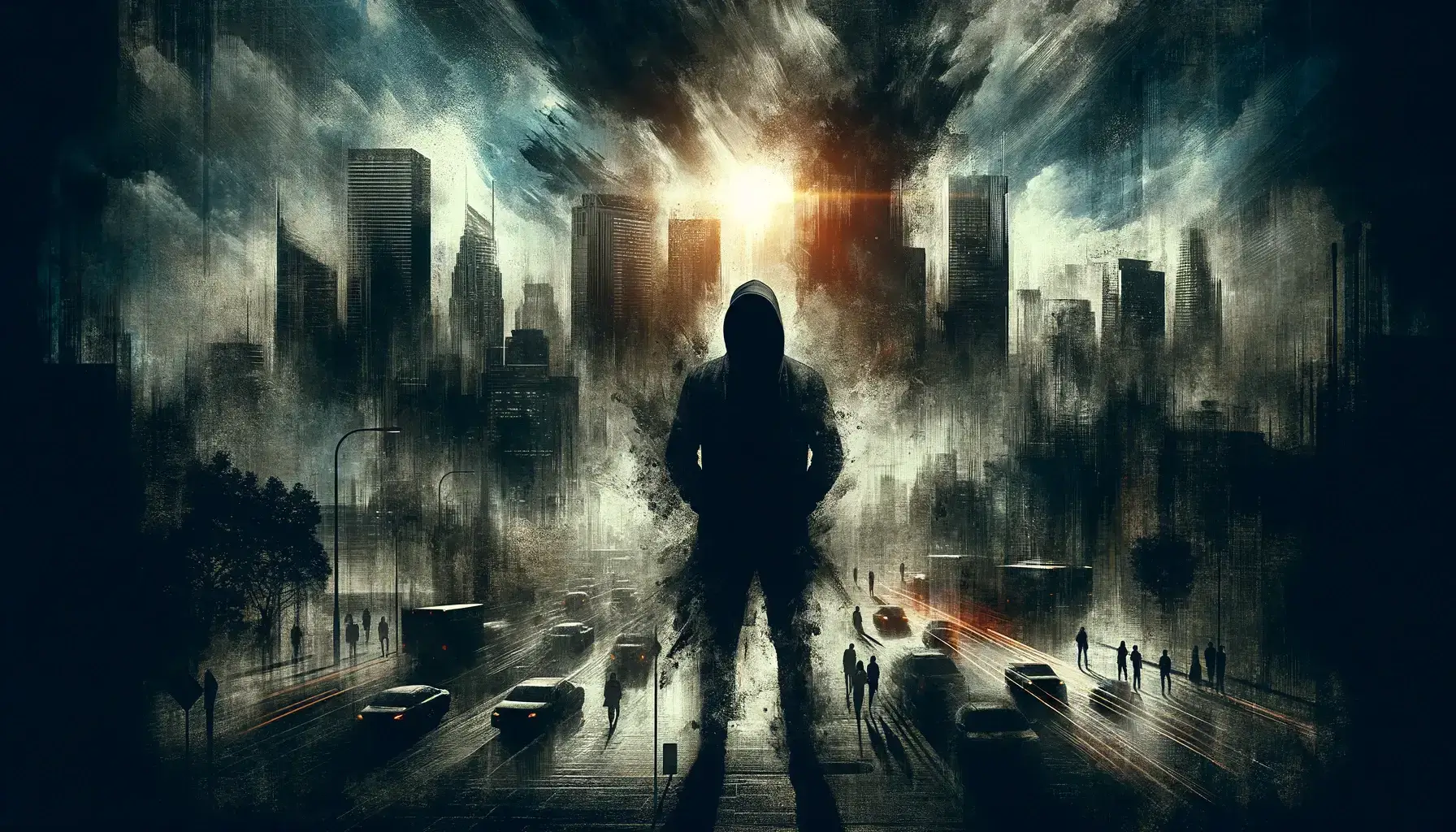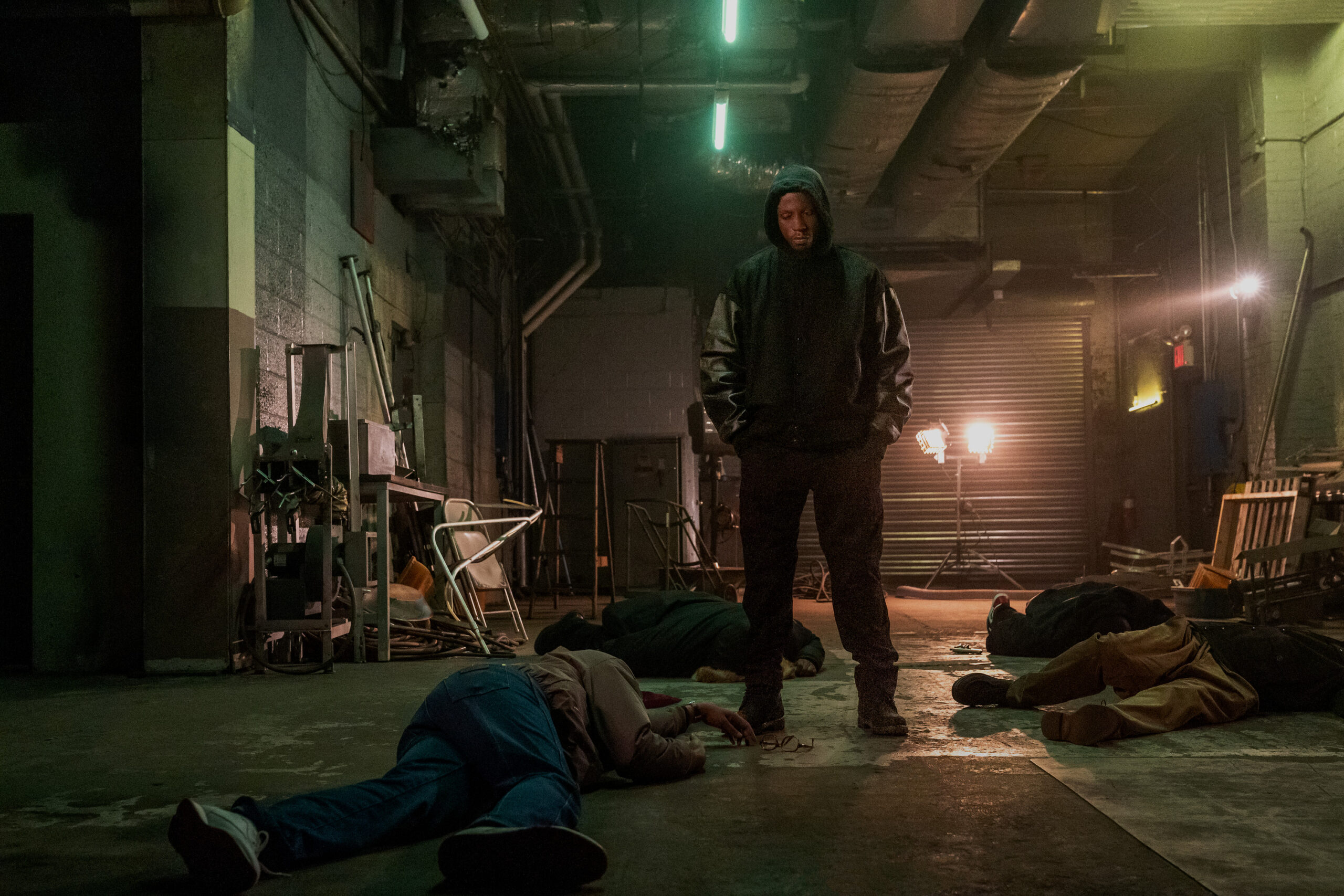When we think about intense television shows, particularly those that explore the grittier sides of life, like *Raising Kanan*, our minds often wander to the fates of the people we watch. There's a certain pull, a curiosity, about who makes it through and who doesn't. We get invested in these characters, their struggles, their triumphs, and, quite often, their dramatic exits from the storyline. It's almost as if we're right there with them, feeling the tension and the danger that seems to follow them around every corner.
The emotional impact of a character's sudden departure, especially when it involves someone being brought to an end, can be quite strong for viewers. It leaves us wondering about the circumstances, the reasons, and, of course, the individuals responsible for such an event. This kind of storytelling, where lives can be cut short without much warning, really keeps us on the edge of our seats, doesn't it? It makes us think about the choices characters make and the often harsh consequences that follow, so you know, it's a pretty intense experience.
Today, we're going to explore the idea of someone being brought to an end, or "killed," as the common term goes, drawing from what it means to deprive someone of life. We won't be sharing specific plot details from any show, as that's not what this is about, but rather looking at the general concept of what it means for a life to be taken away. This way, we can think about the various ways a character might meet their end in a dramatic series, like how one might wonder who killed Famous in Raising Kanan, without getting into actual story spoilers.
The Question of a Character's End in Raising Kanan
In shows that mirror the harsh realities of certain environments, characters often face peril. The question of who might be responsible for a character's demise is a frequent topic of conversation among those who follow the story. It's a natural thing to wonder, given the high stakes and the constant threats that seem to loom over everyone involved. You see, these narratives are built on suspense, and the uncertainty of a character's future is a big part of that.
What Does it Mean to be "Killed" in the World of Raising Kanan?
When we talk about someone being "killed," we're really talking about the act of causing a person or something else to stop living. It's about taking away life, making it so that existence ceases. This idea applies to any living thing, whether it's a person, an animal, or even a plant. In a show like *Raising Kanan*, where the environment is often dangerous, this concept takes on a particularly grim weight. It means a character's story arc comes to an abrupt halt, often through violent means, and that, is that, for their part in the tale.
The simple meaning of being brought to an end is to take away life, to make it so that a living being can no longer continue. This can happen in many ways, some quick, some drawn out, but the result is always the same: the cessation of life. For viewers, this can be a very impactful moment, signaling a major shift in the story's direction or the consequences of actions taken by other characters. It's a fundamental part of the drama in these kinds of stories, really.
Who Might Be Involved in Causing a Character's End, Like Famous in Raising Kanan?
When a character's life is brought to a close in a story, it's always because something or someone brings about that outcome. It's not usually a random occurrence in a narrative; there's typically a cause, an agent behind the event. This could be another person, a group, or even a series of unfortunate circumstances that lead to a fatal conclusion. The show itself often builds up to these moments, making us wonder about the forces at play.
Consider the examples where people are fatally hurt, like in a shooting incident. This involves a person, often a single individual, taking action that results in another's life being cut short. Or, in other situations, like a road accident, it might be an event where several people lose their lives due to a collision. The common thread is that an external force or action leads to the end of life. So, when thinking about who might have caused a character's end, like Famous in Raising Kanan, one considers the various characters and their motivations within the story's world.
Understanding the Act of Taking a Life
The act of taking a life, or "killing," is a broad idea that covers many different ways a living thing can cease to exist. It doesn't always imply a specific method or a particular reason. It's the general term for causing something to die, whether that something is a person, an animal, or even a plant. This generality allows for a wide range of scenarios in storytelling, making the possibilities quite open for how a character's journey might conclude.
Depriving Someone of Life - A Closer Look
To deprive someone of life means to take away their ability to live, to breathe, to exist. It's a forceful removal of their vital functions. This idea can be seen in various contexts. For instance, if someone is shot, their life is taken away in a very direct and immediate manner. This often leaves others seriously hurt as well, showing the destructive ripple effect such an act can have. It's a very stark illustration of what it means to bring about someone's end.
The concept extends beyond just physical harm to individuals. Sometimes, it refers to the complete wiping out of a group, like when invaders might have brought an end to all the residents of a town. This signifies a total destruction, leaving nothing behind. It's a rather grim picture, but it helps us grasp the full scope of what it means to deprive something of life, whether it's an individual or an entire community.
The Many Ways a Life Can Be Brought to a Halt
There are so many different ways to describe the act of bringing a life to a halt, each carrying its own shades of meaning. We can talk about someone being "destroyed," which suggests a complete ruin, leaving nothing intact. Or, if the act is deliberate and malicious, we might say they were "murdered," indicating a premeditated taking of life. These words give us a little more insight into the nature of the event, don't they?
Other words like "dispatched" suggest a quick, perhaps efficient, end. "Slaughtered" brings to mind a brutal, often indiscriminate, act of ending many lives. To "slew" someone is an older way of saying they were brought to an end, often in battle or a violent confrontation. When we say a life was "taken," it's a more general, perhaps softer, way of describing the cessation of life, without necessarily implying the method. And then there's "assassinated," which implies a targeted, often politically motivated, killing of a prominent person. Finally, "claimed" suggests that something, perhaps a disease or an accident, took a life. Each of these words paints a slightly different picture of how a life might cease, so it's interesting to consider their nuances.
The Concept of Destruction and its Counterparts
When we talk about something being "destroyed," we mean it's completely ruined, made unusable, or brought to an end. This idea isn't just for living things; it can apply to objects or even abstract concepts. The act of destroying completely means to leave nothing left, to utterly wipe something out. This is a powerful concept, suggesting an irreversible change from existence to non-existence.
In contrast to bringing something to an end, there are words that describe the opposite process. These words speak of bringing something back to life, giving it new existence, or helping it grow. They represent the hopeful side of this discussion, showing that where there is an end, there can also be a beginning or a renewal. It's a way of looking at the cycle of existence, you know?
Reviving and Restoring - The Opposite Side of the Coin
On the other side of causing someone to cease living, we have actions that bring things back to life or help them thrive. For instance, "animated" can mean to bring to life, to give spirit or movement to something that was still. "Raised" can refer to bringing someone up from a state of being down, or even from death in a metaphorical sense. These words carry a sense of renewal and vitality.
"Restored" means to bring something back to its original or former condition, often implying a return to health or proper function. "Revived" is about bringing someone or something back to consciousness or life after being seemingly gone. And "resurrected" implies a more dramatic return from death, often with a spiritual connotation. Finally, "nurtured" means to care for and encourage the growth or development of something. These terms, in a way, highlight the profound difference between taking life and giving it, or bringing it back.
The Broad Scope of "Killing"
The word "kill" itself is quite general, as we've touched upon. It doesn't tell us how the act happened, who did it, what caused it, or even what kind of living thing was affected. It simply states that life was taken away. This broadness makes it a very versatile word in language, able to fit many different situations without getting bogged down in specifics.
For example, whether it's a person, an animal, or a plant, the word "kill" can be applied. This means a story can use the term to describe a wide array of events, from a dramatic human conflict to something as simple as a plant not surviving. It's a word that captures the essence of life ceasing, without adding extra details that might not be relevant to the immediate point being made.
Can Microorganisms Be "Killed" in a Story, and How Does That Relate to Who Killed Famous in Raising Kanan?
Interestingly, the concept of "killing" isn't just limited to larger living beings. It can also apply to very tiny life forms, like microorganisms or infectious agents. When these are "inactivated," meaning they're made unable to cause harm or function, it's a form of bringing their "life" or activity to an end. They are rendered incapable of doing what they normally would.
While this might seem far removed from the dramatic events of a show like *Raising Kanan*, it illustrates the wide range of situations where the concept of ending life applies. It shows that "to kill" can mean to stop something from being active or dangerous, even if that something is microscopic. So, in a way, it broadens our appreciation for the many meanings behind the question of who might have caused a character's end, like Famous in Raising Kanan, by showing how varied the concept of "ending" truly is.



